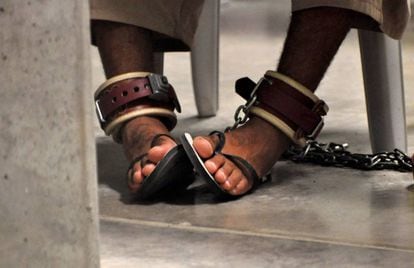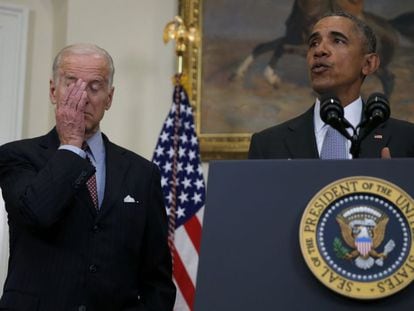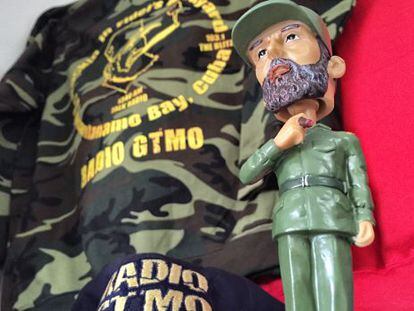Obama administration approves its largest Guantanamo detainee transfer
President still likely to find it difficult to close the prison despite departure of 15 inmates
The United States has sent 15 Guantanamo Bay detainees to the United Arab Emirates, the largest single transfer of prisoners during the administration of President Barack Obama, which promised to have the detention center closed six years ago. The Pentagon announced the move on Monday and said the president’s objective is to transfer remaining prisoners on the approved transfer list before the end of his term. Yet given Congress’ strong refusal to house detainees deemed too dangerous to send to other countries in American facilities, it is unlikely that the White House will manage this goal.

The transfer of 12 Yemeni and three Afghan detainees to the United Arab Emirates has reduced the prison’s population to 61 inmates. The administration of President George W. Bush opened the prison in 2002 to hold terror suspects and bypass international safeguards with respect to indefinite imprisonment. Most of the prisoners have not been formally charged with a crime. They languish in a kind of limbo that barely affords them certain rights, a scenario justified by the Bush administration’s argument that some individuals – enemy combatants – may be held for long periods without trial under the laws of war.
Twenty of the remaining detainees have been approved for transfer and are waiting for a country that has adequate monitoring capacity to receive them. A transfer is approved after a stringent evaluation process, and the secretary of defense must tell Congress it has determined that the prisoner poses no security threat 30 days before their move.
When Obama assumed the presidency in 2009, there were 242 Guantanamo detainees. A total of 780 prisoners have been held at the military base in southeast Cuba, which has become a symbol for human rights abuses in the name of the war on terror.
Twenty of the remaining 61 detainees have been approved for transfer and are waiting for a country that has adequate monitoring capacity to receive them
The stumbling block on the road to closing Guantanamo is the group of 40 prisoners deemed too dangerous for transfer to other countries. For the last seven years, President Obama has been proposing transferring them to American facilities. In February, he outlined his latest plan to move those detainees, saying that the detention center is costly and “contrary to our values.”
But the Republican majority in Congress is opposed to changes in the law that would allow transfers to the United States. Obama has not ruled out signing an executive order to close Guantanamo but doing so would involve delicate legal and political maneuvers.
“The continued operation of the facility weakens our national security by draining resources, damaging our relationships with allies and partners, and emboldening violent extremists,” said Lee Wolosky, the US State Department special envoy for Guantanamo closure.
Meanwhile, each transfer strengthens Republicans’ resolve to oppose Obama’s promise to close the center, and reinvigorates critics who say some Guantanamo detainees have already returned to terrorist activities. “In its race to close Gitmo, the Obama administration is doubling down on policies that put American lives at risk,” said House Foreign Affairs Committee Chairman Ed Royce, a California Republican.
Sign up for our newsletter
EL PAÍS English Edition has launched a weekly newsletter. Sign up today to receive a selection of our best stories in your inbox every Saturday morning. For full details about how to subscribe, click here
Before the Pentagon announced the latest detainee transfer, Republican presidential candidate Donald Trump said on Monday that he would keep Guantanamo open. Last week, he stated in an interview that he was “fine” with American citizens being tried in military tribunals at Guantanamo Bay.
The real estate magnate has made his tough stance on terrorism one of the pillars of his campaign. It is a return to the fear-mongering language of the post-9/11 era, which shows that, for many Americans and despite Obama’s best attempts, Guantanamo is still something to be proud of.
English version by Dyane Jean François.
More information












































